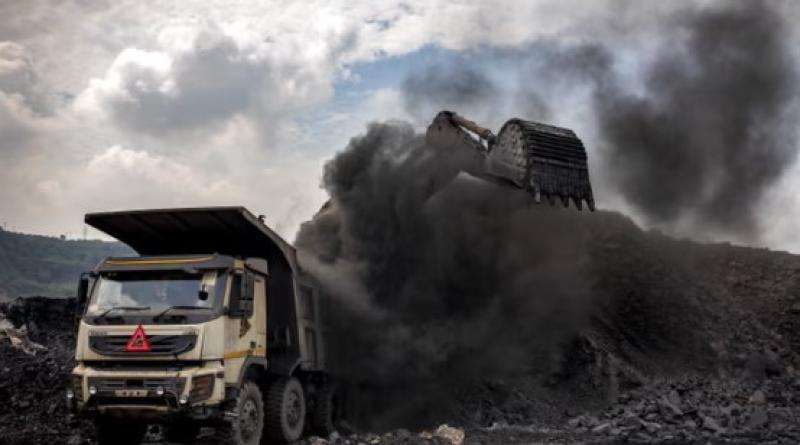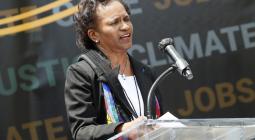‘Insanity’: petrostates planning huge expansion of fossil fuels, says UN repor

Plans by nations including Saudi Arabia, the US and UAE would blow climate targets and ‘throw humanity’s future into question’
The world’s fossil fuel producers are planning expansions that would blow the planet’s carbon budget twice over, a UN report has found. Experts called the plans “insanity” which “throw humanity’s future into question”.
The energy plans of the petrostates contradicted their climate policies and pledges, the report said. The plans would lead to 460% more coal production, 83% more gas, and 29% more oil in 2030 than it was possible to burn if global temperature rise was to be kept to the internationally agreed 1.5C. The plans would also produce 69% more fossil fuels than is compatible with the riskier 2C target.
The countries responsible for the largest carbon emissions from planned fossil fuel production are India (coal), Saudi Arabia (oil) and Russia (coal, oil and gas). The US and Canada are also planning to be major oil producers, as is the United Arab Emirates. The UAE is hosting the crucial UN climate summit Cop28, which starts on 30 November.
The report sets out starkly the fundamental conflict driving the climate crisis: fossil fuel burning must rapidly be cut down to zero, yet petrostates and companies intend to keep on making trillions of dollars a year by increasing production.
“The addiction to fossil fuels still has its claws deep in many nations,” said Inger Andersen, the executive director of the UN environment programme. “These plans throw humanity’s future into question. Governments must stop saying one thing and doing another.”
Neil Grant, an analyst at the Climate Analytics thinktank and an author of the report, said: “Despite their climate promises, governments’ plan on ploughing yet more money into a dirty, dying industry, while opportunities abound in a flourishing clean energy sector. On top of economic insanity, it is a climate disaster of our own making.”
The report profiles 20 fossil fuel-producing nations, which were the combined source of 84% of CO2 emissions in 2021. Of those, 17 had pledged to achieve net zero emissions, said Michael Lazarus at the Stockholm Environment Institute (SEI), a lead author of the report.
“[The problem is] the desire for each country to maximise their own production,” he said. There needed to be an internationally coordinated and equitable global phase-out of fossil fuels, Lazarus said.
A long series of scientific studies has concluded that any new oil and gas fields are incompatible with staying below the 1.5C global heating limit agreed in Paris, including a 2021 analysis by the International Energy Agency. The Guardian revealed in 2022 that the world’s biggest fossil fuel businesses were planning scores of “carbon bomb” oil and gas projects.
The new report analysed the expansion plans of the big fossil fuel producers based on publicly available data. It found the gap between planned production and the amount consistent with keeping to 1.5C of global heating was as large now as when the analysis was first done in 2019. The gap in 2030 is estimated at 20bn tonnes of CO2, about half of today’s annual global emissions.
After Saudi Arabia, the US, Brazil and Canada have the next biggest oil expansion plans and the Cop28 host UAE is seventh on the list. Qatar has the biggest gas expansion plans and Nigeria is third, after Russia. India’s coal expansion plans are enormous: three times that of second-placed Russia, with Indonesia in third and Australia in fifth.
Overall, only four countries have plans under which overall emissions from the fossil fuels they produce would fall: the UK, China, Norway and Germany.
The report said relying on uncertain future technology to capture CO2 and put it back underground was risky: “Countries should aim for a near total phase-out of coal production and use by 2040, and a combined reduction in oil and gas production and use by three-quarters by 2050, at a minimum.”
The planned expansions could end up losing the fossil fuel producers many billions of dollars if the world does act to slash CO2 emissions and halt the climate crisis, said Ploy Achakulwisut, another lead author on the report at SEI: “Many of these investments are at risk of becoming stranded assets as the world decarbonises.”
Romain Ioualalen, at the research group Oil Change International, said: “Our recent analysis shows that just five rich global north countries are responsible for the majority (51%) of planned new oil and gas extraction to 2050: the US, Canada, Australia, Norway and the UK. These countries have the moral and historical responsibility to move first and fastest to phase out fossil fuel production.”
Fossil fuels are the root cause of the climate crisis, but the first time they were mentioned in the final text from a UN summit was in 2021. That was the 26th annual UN climate meeting, where a “phase down” of coal alone was called for.
“Starting at Cop28, nations must unite behind a managed and equitable phase-out of coal, oil and gas, to ease the turbulence ahead and benefit every person on this planet,” Andersen said. “Powering economies with clean energy is the only way to end energy poverty and bring down emissions at the same time.”
António Guterres, the UN secretary-general, said: “Governments are literally doubling down on fossil fuel production - that spells double trouble for people and planet. Fossil fuels are sending essential climate goals up in smoke.”
Photograph: Altaf Qadri/AP





